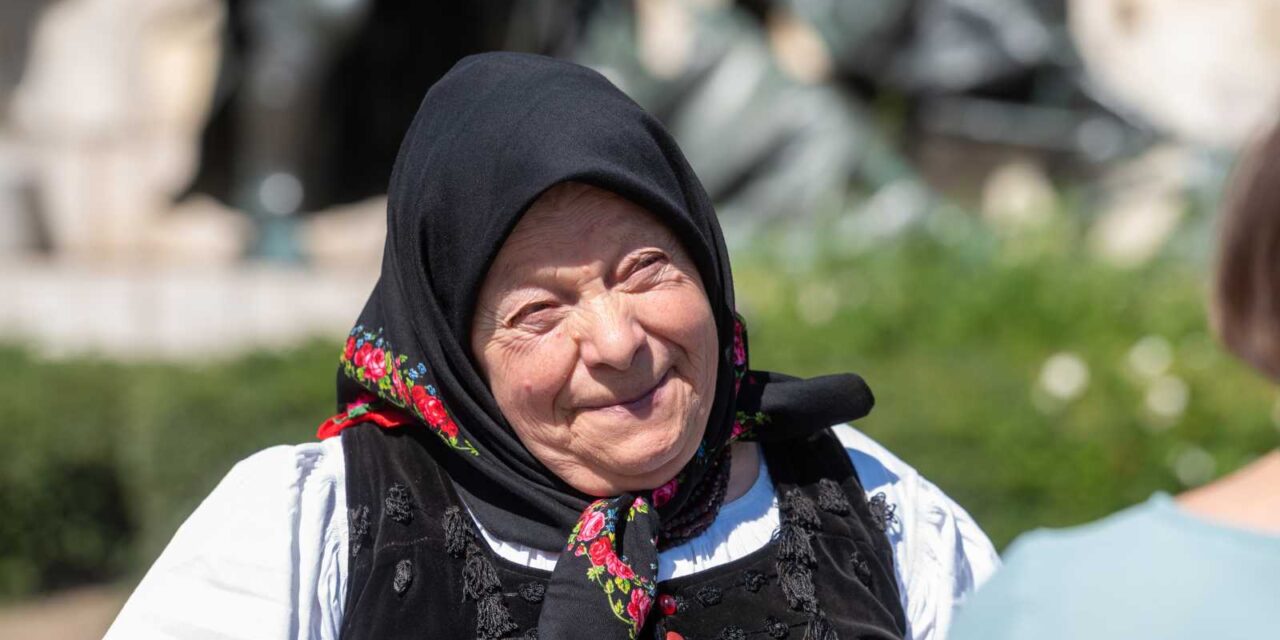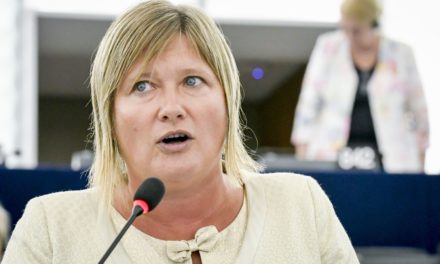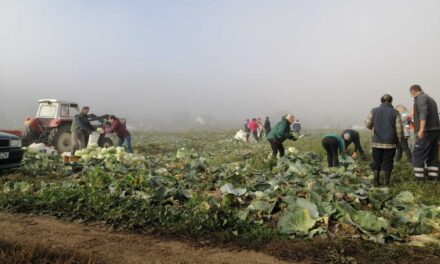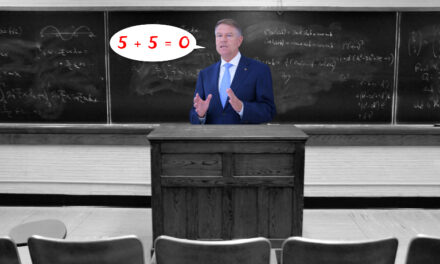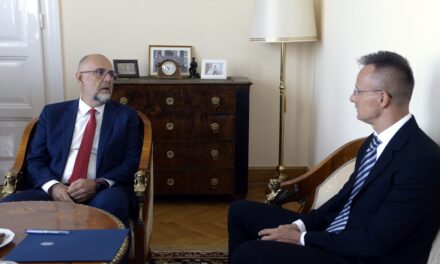A life in Szék folk costume, in Cluj.
One of the characteristics of Cluj is that you can sometimes see people dressed in national costumes on the streets - not only on holidays, but also on an average weekday morning, for example. In the market, in the church, in the shopping centers, in the main square and even on the terrace of the restaurants. Although it is everyday that some of the elderly people who have settled in from the surrounding villages still wear their national costumes, tourists watch with wide eyes as 75-year-old Klára Fülöp (née Zsoldos) parades in front of the statue of King Mátyás on Thursday morning in her measured, clean and neatly ironed sézki attire. , whom we invite for a walk.
According to him, he never renounced his identity, it only happened once that he dressed as a "Nazi" for a parents' meeting, but he felt uncomfortable without his clothes. At that time, he decided that, despite the big city, he would live his life as a Szekler and not only keep his national costume, but also some of their customs. There was a time when he raised 3 pigs in the treasure town, farmed after work and cultivated a garden to be able to market. He did not move for "fashion", but so that his sons could study.
We hear about Aunt Klári for the first time during a friendly conversation: she is then referred to as the Széki woman in Cluj, who remained Széki even in the city and did not throw away her identity. He immediately becomes interested in how she lived in the past decades - during the years of communism and after the regime change - and how a Szék woman who respects her traditions lives in Cluj today, so we will find her as soon as possible and invite her for a walk.
In a short hour, the old woman fills us with a lot of wisdom. For example, with the fact that love can burn even after nearly sixty years, if two people mutually respect each other; or that there is no such thing as an unemployed healthy person, he is just a work avoider; and with his own example, he also proves that if someone works hard and lives frugally, he can build himself a house with his own two hands. Even more.
The woman from Szék, who was not satisfied with household tasks: she was also a "school servant", a cleaner, a farmer, a livestock keeper and a market sweeper
Aunt Clári was not tense when we met. It is from Sora (not for Cluj residents: a shopping center close to Főtér, ed.) that he tries to get to the statue of King Mátyás, as we discussed. You walk towards us measuredly, with a kind smile on your face, and it doesn't bother you that many people are staring at you, taking pictures or turning after you. After all these years, you've gotten used to it, you don't even notice it. He was only ashamed of his clothes once - he winks when we talk about him as a phenomenon and immediately starts telling his story.
"I could have been a city brat," when we moved to Cluj, I bought myself new clothes. They are still in the closet today, because I once went to a parents' meeting without national costume, and I felt like everyone was looking at me. I felt ugly, ridiculous. I went home, undressed, and never took off my national costume again. This is how I go to the church, the city, the market. In the winter in dirty clothes, in boots, in the summer in a shirt".
We learn that Aunt Klári was born in 1948, spent her childhood and teenage years in Szék, and even some of her young womanhood, until 1985, when she and her husband decided to move the family to Cluj. Well, not because they were "urbanites", as many assumed, but because their sons were talented and he believed they were capable of more than field work.
"I got married at a very young age, I just turned 16, today we have been married for 58 years, and I have asked God to make it to at least the 60th. My husband laughed a lot, he said, on the sixtieth, we'll still ask for one or two. Otherwise, we lived in Szék until '85. My husband worked in Cluj, we had three sons. I've always wanted them to be a little different from us, not just living as farmers. They studied well, they were smart children"
Aunt Klári tells the story of her family. He adds that moving from the village to the city was much more difficult at that time than it is now: until the revolution, they could not even have an identity card, and even though they bought the house, they could not arrange the official documents for a long time.
Regardless, the boys continued to study undeterred: they even went to the smallest university and completed their higher studies in religion and history. Today, he is an entrepreneur, as is the middle child, says the mother proudly, and then adds in a dying voice that God took the biggest one. He was twenty-three years old and had been married for three months when he died in a car accident. "We had to carry the cross on," he adds sadly, then thanks God for his grandchildren. They forget the grief to some extent, and the fact that the three families live in the same yard makes the elderly parents happy.
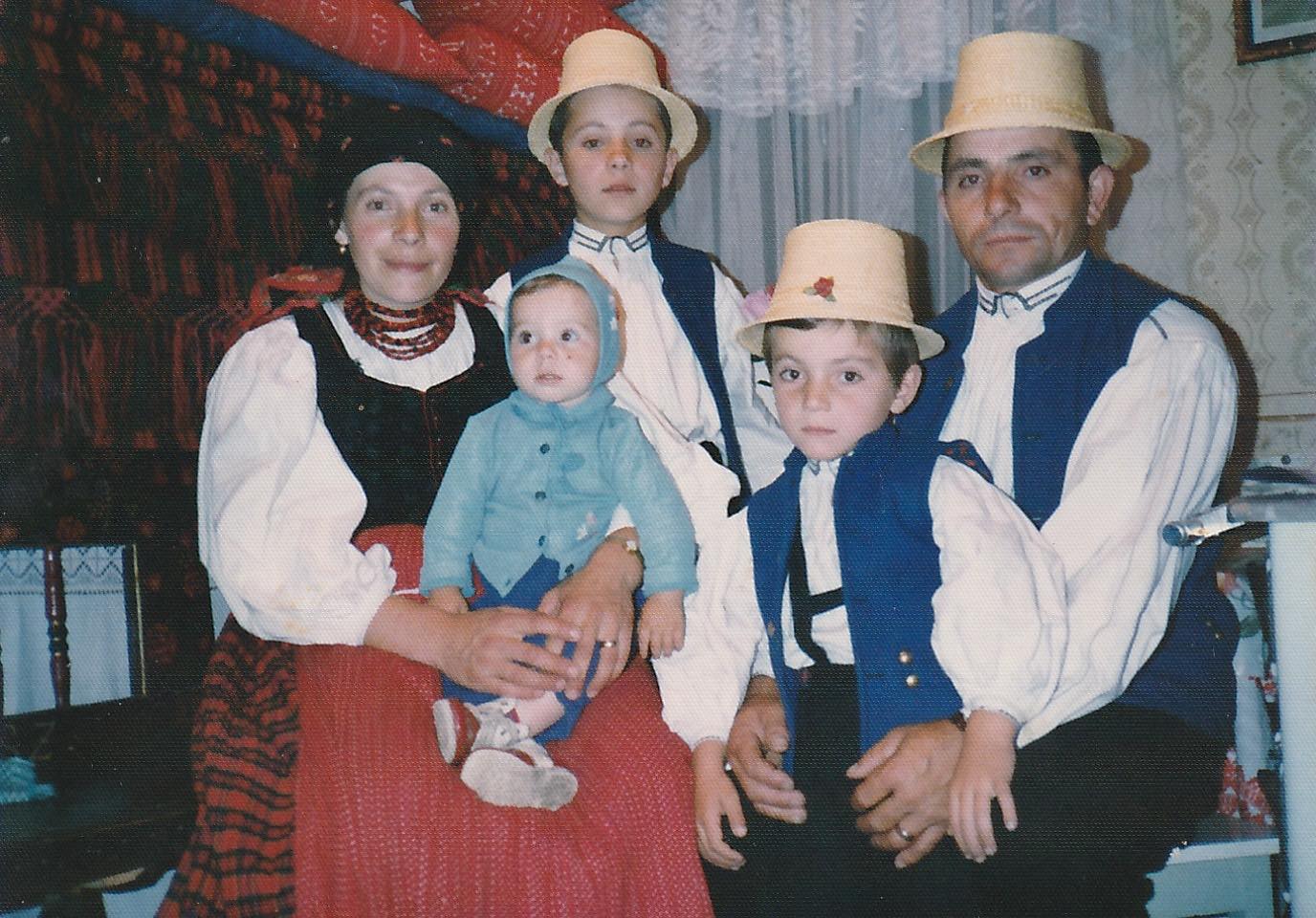
Photo: Gábor Kiss / Maszol
"When my oldest son was preparing for university, I worked for 160 days for three teachers for free to prepare him. Before the revolution, he graduated with such good grades that he was not admitted to the university. Then he joined the army, when he was demobilized, got married, and died in the accident not long after that."
- recalls the family tragedy, but instead of sadness, you can see relief in his eyes. He accepted God's will, which was perhaps helped by his conviction that he did everything for his children as a parent.
Although she doesn't know it, or at least she doesn't say it, during the conversation we get the feeling that she was a female personality who thought in a unique way of her time: she admits that in the period when women played more of a motherly and domestic role, she herself wanted to work, not she was satisfied with the fact that only her husband went to work, she wanted a state job and a pension for herself in her old age.
So he got a job as a "school servant", i.e. he cleaned the school, which was considered a privilege during communism, since no one was hired for such a position, next to the teachers. But even before, in the collective, in addition to raising children, he also worked hard: he went hoeing; and later, when they moved to Cluj and she didn't have a job yet, although she needed the money, she cleaned for wealthier families, supported themselves from this and her husband's construction worker earnings, and built a house in the treasured city.
"We will be living in Szék for a long time, because we are going home to be buried"
Aunt Klára also likes to talk about what they left behind in Széken, but she always emphasizes that they did not turn their backs on their native village. For example, when they had the means, they also renovated their house in Széken, which was built in 1967. "It is in the most beautiful place in Széken: the Catholic church is above, the Reformed church is below, the school and bus stop are opposite. I would have been sorry to spoil it, we kept our roots", he enthuses, then adds with a half-smile, "we will live in Szék for a long time, because we are going home to bury ourselves". There is no deeper confession than this, it is the smallest and most sincere expression of affection for the motherland.
Kiemeli points out that they also lived in Cluj as if they were in Szék, farming 60 acres of land after they moved to the big city.
"My husband went to the construction site, I was already working at the school, but after I came home, I took care of the animals and went out on foot to the bushes while he blew ten o'clock. My husband also came after he finished. My son took me home in the evening by car".
They farmed as much as the urban framework allowed. There was a time when three large pigs were kept in the city.
"We sold one, cut two, and didn't lack anything. But this is still the case today: we only buy flour, sugar, oil and milk from the store"
- while laughing, because he knows that an outsider can hardly understand how they were able to maintain a "double lifestyle", two completely different lives.
They produced what was necessary and even more, so he went to the market with his wares for years. Their garden produced garlic, green onions, lettuce, black radishes, scallions, dill, and cabbage - because, as she says, her husband had worked for a farmer in Hóstát for many years since he was young, and had the opportunity to learn how to garden and love the job.
Aunt Klára is convinced that everything is possible in Cluj, if you want, you can farm, go to the fields, grow your own vegetables.
"I don't know unemployed people, only dead people"
- he points out in a sarcastic tone that many people are freelancing, that they have no job, nothing to make a living, even though they can work at any time, because the opportunity has given them. According to his experience
"such a world has never existed in life and never will, may God save it from war. But you can get everything".
When we are already sitting on a bench and the family stories follow each other, he likes to tell us that they always lived a neat life, because he was also raised to take care of what he had, and he passed this value on to his children.
"When I went to the market, my pockets were always full, but I only bought what we needed. The money can be squandered (spent - ed.) , but in order to build two more floors on our house, we needed money"
- she details, emphasizing that they built their house with their own hands, under the guidance of her husband and with the help of the boys.

